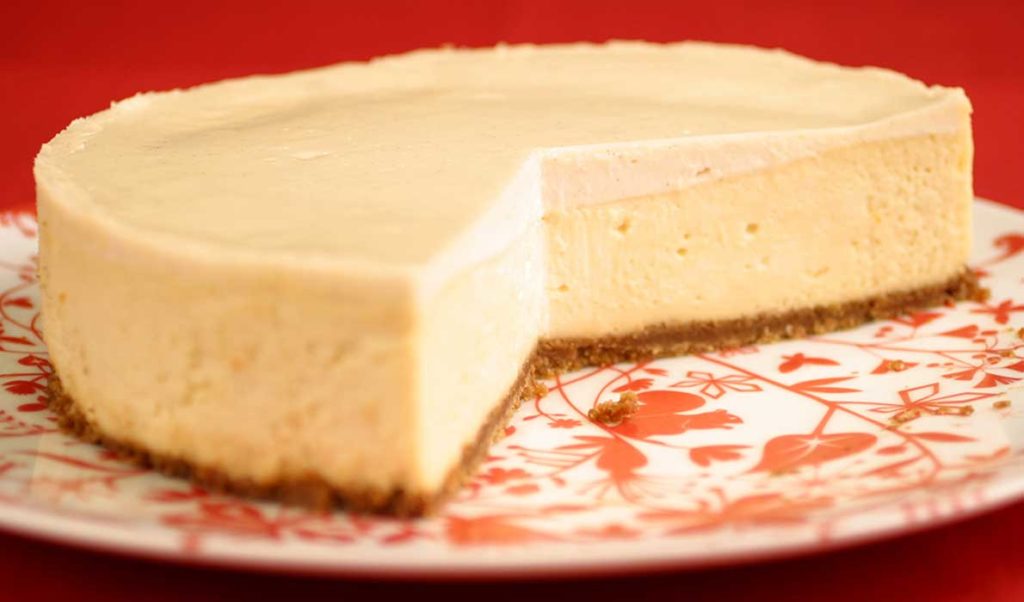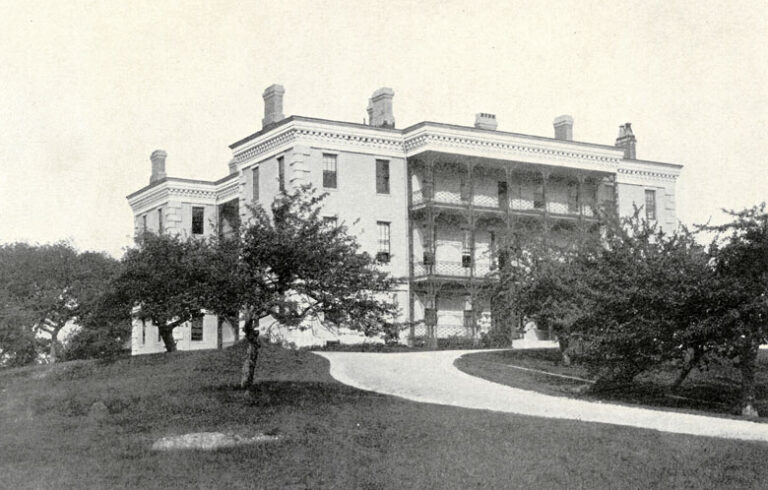One summer from June into September, I baked two cheese cakes every seven to ten days. It was one of two or three dessert choices on the dinner menu of the bed and breakfast inn where I worked.
I learned a lot about cheesecake that summer, though not as much as I would have had I worked in a bakery where dozens were made every day. Still, the experience took me through sunny, dry and cool weeks; sunny, hot and humid weeks; foggy weeks; through store brand ricotta and cream cheese, to top brand ricotta and cream cheese; through weeks when all was well with the kitchen help, and weeks when we were snarling at each other. I learned a lot because of pure repetition.
Same recipe, time after time, yet the cakes varied because the outcome depends so much on weather, ingredient condition and how mindful the cook is while she or he is baking. By that time in my life, I had done enough other cooking tasks to know that the words to live by are “it all depends,” but that summer’s cheesecakes were a real object lesson because our preferred cakes did not crack, yet variable weather and ingredients might open up a half-inch crack or a big three-incher.
Probably in the case of those cheesecakes, humidity and attention were the biggest factors. Store brand ricotta has more water; ditto the cream cheese. Humid weather, I’ve known for years, learned at my mother’s knee, is not ideal for making anything with sugar because the sugar is hydroscopic—attracts moisture—and that compromises the texture of baked goods.
The kitchen was chaotic, serving as a workplace, lunch and break room for staff, owner and owner’s family, sometimes crammed full of people, other times empty. Too often I was obliged to handle the phone calls for dinner reservations or people inquiring about when they could come to stay.
A lot can go wrong with a cheesecake while the cook is on the phone.
Still, the most valuable lessons came from repetition. And they still do because repeating activities or processes gives us a lot of opportunities to observe how variables can affect the outcome, and those variables are always identified as “it all depends.”
In the kitchen, most of us are accustomed to highly standardized ingredients. A major virtue of a bag of flour is that it is identical to the previous one, and we can a count on the next being exactly like the present one. We seldom encounter the differences variable flour quality can have. This is even true of many vegetables, most meat and dairy products. It isn’t until your ingredients come from non-standard sources that we learn the nature of “it all depends,” and sharpen our wits to match experience to the material at hand.
Take beans. Each year, my garden produces beans from two or three varieties, like Tiger Eye, Marfax and Cannelini. I let them ripen on the plants, pick, dry and then shell them out. Some years, though, the season is rainy and the beans have more water in them; other years the beans are a little drier. I learned a while back not to mix together beans from different seasons in one pot of beans because they have different textures depending on the growing season and how long I have stored them. It is better to cook up only 2015 beans for one batch without mixing in a few of the 2014s.
The chickens I raised this year are leaner than store bought chickens. How will I cook them? It all depends. I find braising them and letting them cook longer is a better approach to having a tender morsel of chicken on the plate. I will repeat the process of cooking through all 16 until I really understand the best approach for our preferred result.
Anyone who has had years of experience doing something will tell you, “It all depends.” I asked Jay, the plumber, how long hot water heaters last, and he said, “It all depends. It depends on where they live [cellars vs. a utility closet upstairs, for example] and on the water.” Duh. I should have thought of that. Jay has repeatedly replaced elements in hot water heaters so he has seen the effect of variables on them over the decades he has worked.
So you can read a recipe once and learn how to make something. You can plant beans, harvest them, then eat them. You can read a manual for hot water heater repair and install a new element. But understanding what is going on when you do all these, and why the experience is different from one time to the next, takes repetition, observation, and then you too can say, “It all depends.”
Sandy Oliver is a food historian who lives, cooks and writes on Islesboro.





